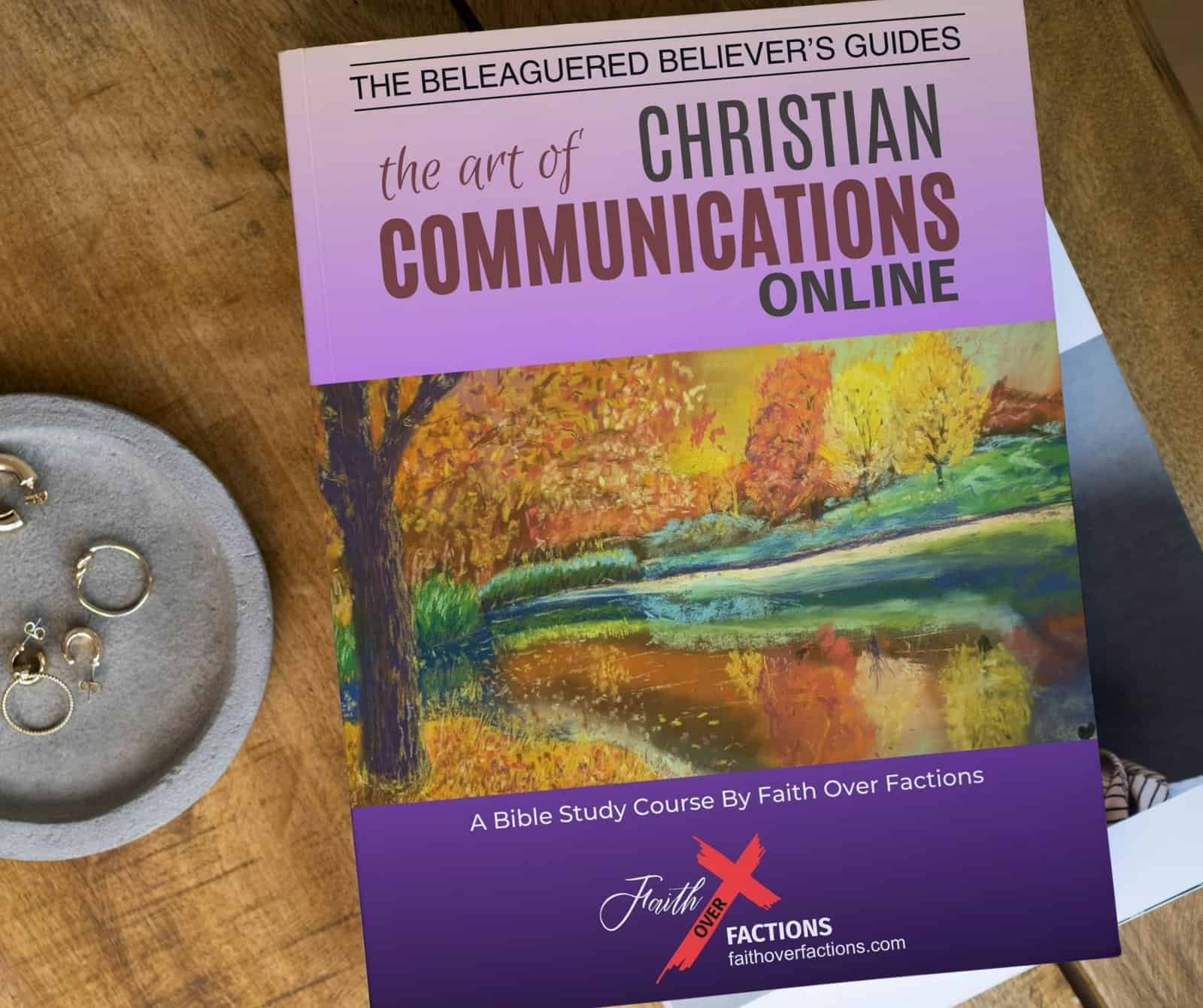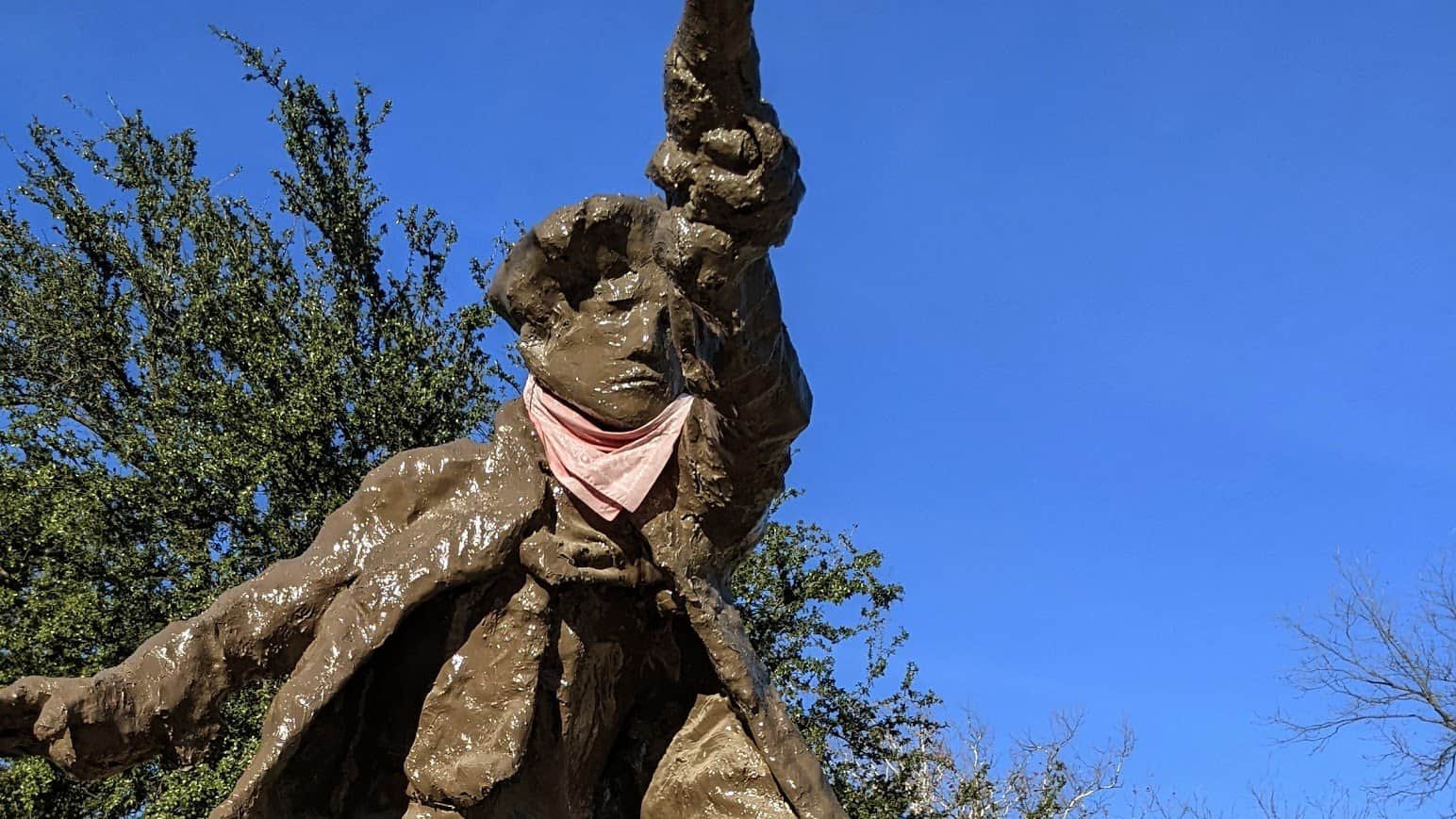
The sanctuary lights dim, and a low hum of anticipation fills the air. On the screen behind the pulpit, an American flag fades into the image of a cross. The pastor steps forward, voice rising: “God is calling us to take back the seven mountains of culture!” Applause breaks out. Some raise their hands in worship; others clench their fists in agreement.
To many, it feels like revival—a spiritual army rallying for righteousness. But beneath the music and emotion lies a different message, one that twists devotion into dominion. It’s called the Seven Mountain Mandate, a teaching that promises cultural victory but slowly replaces servanthood with supremacy.
It sounds righteous. It feels patriotic. It even quotes Scripture. Yet what it asks of believers is not surrender to Christ’s kingdom, but allegiance to a human one. And when faith is turned into a weapon of conquest, both the gospel and freedom begin to fade.
It promises cultural victory for Christians but quietly replaces servanthood with supremacy. It tells believers that freedom will come when Christians rule the world, not when hearts are transformed by love.
Anchor in the Word
Key Scripture Verses
“Your priests have violated my instructions and defiled my holy things. They make no distinction between what is holy and what is not. They do not teach my people the difference between what is clean and unclean. They disregard my Sabbaths so that I am dishonored among them.”
Ezekiel 22:26 (NLT)“But Jesus called them together and said, ‘You know that the rulers in this world lord it over their people, and officials flaunt their authority over those under them. But among you it will be different. Whoever wants to be a leader among you must be your servant, and whoever wants to be first among you must become your slave. For even the Son of Man came not to be served but to serve others and to give his life as a ransom for many.’”
Matthew 20:25–28 (NLT)Key Scripture Context
Ezekiel spoke during Israel’s moral collapse, when priests blurred the line between God’s holiness and political ambition. Their corruption desecrated the sacred by mixing devotion with power. God’s name became a banner for self-interest, and the people followed leaders who could no longer tell the difference between worship and control.
Jesus had just corrected His disciples for arguing over rank and privilege. His words shattered every notion of leadership built on control. In His kingdom, greatness is defined by humility. True authority flows from love, not from dominance. Christ’s call to servanthood stands in direct opposition to the spirit of conquest that fuels the Seven Mountain Mandate.
What We’re Facing
The Seven Mountain Mandate is a doctrine within a network often referred to as the New Apostolic Reformation (NAR). It teaches that Christians must “take dominion” over seven spheres of society—government, education, media, family, business, arts and entertainment, and religion—to bring God’s kingdom to earth.
Promoters of this teaching describe it as cultural transformation, but the result is something far different: a blueprint for theocracy dressed as revival.
1. Systemic Injustice
The Seven Mountain Mandate redefines discipleship as dominance. Instead of protecting religious liberty for all, it elevates one ideology above others. Under the banner of “kingdom authority,” it seeks to sanctify control. What should be a faith that defends the oppressed becomes one that crowns the powerful.
Once faith is wielded as a tool for governing rather than guiding, justice turns selective. Laws are written not for mercy but for maintaining advantage. The poor, the immigrant, the outsider, and the skeptic are no longer neighbors to love—they are obstacles to remove. What begins as moral reform becomes moral hierarchy, and the gospel of grace is replaced by the politics of purity.
This is not new. Israel’s prophets railed against leaders who “deprived the poor of justice” (Isaiah 10:2). Every time religion aligns itself too closely with rule, someone gets trampled. God’s heart breaks when His name is used to justify exclusion.
2. Spiritual Bondage
The movement teaches that God’s blessing depends on political victory. Prayer becomes performance, revival becomes recruitment, and loyalty to Christ is measured by loyalty to the cause. When faith becomes a strategy for influence, believers are chained to the world’s measures of success—votes, visibility, and money—rather than the Spirit’s quiet fruit of love, joy, peace, and self-control.
This is a subtle captivity. Many who fall into it believe they’re fighting for God, but they are slowly surrendering their freedom in Him. Fear of losing cultural control replaces trust in divine sovereignty. Instead of “be still and know that I am God,” the mantra becomes “fight harder or evil will win.”
It’s a heavy yoke masquerading as devotion. Yet Jesus said, “My yoke is easy, and my burden is light” (Matthew 11:30). Any teaching that demands constant anxiety for God’s reputation is not born of His Spirit. True faith releases control; it does not tighten its grip.
3. Cultural Manipulation
The Seven Mountain Mandate spreads its message through fear and spectacle. Pulpits echo with warnings that darkness will reign unless “righteous” believers seize the gates of influence. The narrative is intoxicating—it turns worshipers into warriors, pastors into generals, and political campaigns into crusades.
Fear becomes the glue that holds it together. It binds people to movements that promise protection but deliver subservience. When believers are told that only one party, nation, or system can preserve their faith, they exchange the freedom of the gospel for the safety of an idol.
Prophets in every generation have warned against such manipulation. Jeremiah denounced those who “heal the wounds of my people lightly, saying, ‘Peace, peace,’ when there is no peace” (Jeremiah 6:14). Today’s false peace sounds like “unity under control.” It offers comfort, but it costs conscience.
Freedom is never found in fear. It’s found in trust—in the confidence that God remains sovereign even when nations rage. Faith that relies on panic is faith that has forgotten the cross.
Religious Figures Associated with the Seven Mountain Mandate
C. Peter Wagner – The late theologian and missiologist often credited as the leading architect of the New Apostolic Reformation (NAR). He articulated the Seven Mountain Mandate as part of a broader vision for modern “apostolic governance” in the church.
Lance Wallnau – Author and speaker known for popularizing the phrase “Seven Mountains of Culture.” He teaches that Christians are called to influence key societal spheres to advance God’s kingdom on earth.
Bill Johnson – Senior leader of Bethel Church in Redding, California. While not an explicit political figure, his ministry and affiliated networks have been linked to Seven Mountain–style language emphasizing cultural influence and supernatural authority.
Paula White – Pastor and longtime spiritual advisor to President Donald Trump. She has been a visible advocate of Seven Mountain Mandate themes, emphasizing dominion and spiritual authority in government.
Dutch Sheets and Lou Engle – Prominent figures within the New Apostolic Reformation known for national prayer movements and revival gatherings. Both have promoted ideas aligned with the Seven Mountain framework, focusing on reclaiming cultural “mountains” through intercession and activism.
Government Figures Associated with the Seven Mountain Mandate
Mike Johnson – Current Republican Speaker of the U.S. House of Representatives and representative for Louisiana’s 4th congressional district. He has drawn attention for associations with pastors and ministries that support aspects of the Seven Mountain Mandate, including reported connections with pastor James Garlow.
Lauren Boebert – Republican U.S. Representative for Colorado’s 3rd congressional district. She has expressed views and affiliations that align with Christian nationalist rhetoric often connected to Seven Mountains language.
Tom Parker – Chief Justice of the Alabama Supreme Court, noted in media reports for referencing concepts consistent with the Seven Mountain framework in public remarks.
Michele Bachmann – Former Republican presidential candidate and U.S. Representative for Minnesota’s 6th congressional district (2007–2015). She has publicly endorsed teachings associated with the Seven Mountain Mandate.
Donald Trump – While not a religious leader, he has been portrayed by some Seven Mountain advocates, including author Lance Wallnau, as a political figure “anointed by God” to reclaim the “mountain” of government.
For detailed statistics on American Christian Nationalists accross the 50 States see this resource. It is alarmining. : https://prri.org/wp-content/uploads/2025/05/PRRI-Jan-2025-CN-Report-1.pdf
Then and Now — Drawing Parallels
Ezekiel’s generation watched holy offices become tools of empire. Priests profited from power and forgot mercy. The sacred and the profane blurred until people could no longer tell the difference.
Today, when modern prophets and pastors declare that God’s will is for Christians to rule, the same corruption reappears. The altar becomes a platform for ideology; worship becomes performance; repentance gives way to recruitment.
Ancient Israel was warned not to trust in alliances and kings for security. Our modern temptation is subtler: to believe the kingdom of God can be voted into office or legislated into existence.
Theological Truth in Plain Language
Jesus refused the devil’s offer of “all the kingdoms of the world” (Matthew 4:8-10). That moment in the wilderness was more than a temptation—it was a revelation of two competing kingdoms. One builds its power through coercion, the other through compassion. One conquers by fear, the other by love.
Christ’s mission was never to seize power but to redeem hearts. The Seven Mountain ideology reverses that order, claiming that the gospel’s victory depends on controlling the levers of culture. It dresses ambition in spiritual language and calls it obedience. It promises transformation from the top down, but Jesus taught the opposite: that the kingdom of heaven begins within (Luke 17:21), like yeast working quietly through dough, unseen but unstoppable.
The cross dismantles every empire. It exposes the futility of domination by absorbing its violence and answering with forgiveness. Where Caesar ruled by the sword, Christ reigns by the Spirit. His victory was not achieved by winning the argument or the election but by dying in love for His enemies. That is how God overcomes the world—not through conquest, but through cruciform compassion.
When the church seeks dominance, it becomes indistinguishable from the world it was called to serve. The moment we start defending God as if He needs our armies, we have already forgotten who He is. The Savior who could summon legions of angels chose instead to wash the feet of His betrayers. That is divine strength.
God’s kingdom expands through humility, justice, mercy, and truth—never through coercion. Political power can restrain evil for a time, but only grace can transform it. The gospel’s triumph is not measured in legislation but in liberation—the freeing of souls from fear, greed, and pride.
To confuse political gain with spiritual victory is to trade the narrow way for the wide road of power. The narrow road may look small, but it leads to life because it depends on God, not on us. Whenever we try to “win” the world through influence, we risk losing the very thing that makes the gospel holy: its refusal to dominate.
Faith rooted in the cross will always look weak to empires. It refuses the throne and chooses the towel. It walks into darkness without fear of losing, because it knows resurrection does not need permission from the powerful. That is the truth the Seven Mountain message cannot comprehend—and the freedom it can never give.
Practical Moves of Faith
1. Educate Yourself
Learn the history of movements that merge religion with political conquest. Knowledge exposes manipulation. Study Scripture deeply; it will anchor you when slogans sound holy but carry the scent of control.
Prayer Prompt: Lord, open my eyes to recognize when Your name is being used for gain.
2. Examine Your Motives
Ask what drives your political or cultural hopes. Is it love for neighbor or fear of losing control? God’s kingdom cannot be built from anxiety. Trust frees you from reacting to every headline as a battle for God’s throne.
3. Take a Stand for Servanthood
Champion leaders who demonstrate humility rather than dominance. Protect religious freedom for those who believe differently. When you defend the rights of others, you also defend your own.
4. Pray for Discernment in Community
Gather with believers who care more about compassion than conquest. True revival begins in small circles of faithfulness, not in rallies for control.
Prayer Prompt: Jesus, teach us to lead through love and truth, not fear and force.
More Light for the Journey
Micah 6:8 (NLT) — “The Lord has told you what is good… to do what is right, to love mercy, and to walk humbly with your God.”
Power without humility betrays His name.Isaiah 10:1-2 (NLT) — “What sorrow awaits the unjust judges… They deprive the poor of justice.”
When faith blesses injustice, it ceases to be faith.Psalm 146:3-4 (NLT) — “Don’t put your confidence in powerful people; there is no help for you there.”
Trust belongs to God alone.Zechariah 4:6 (NLT) — “Not by force nor by strength, but by my Spirit, says the Lord.”
The Spirit, not strategy, builds the kingdom.
Let’s Walk This Out Together
The Seven Mountain Mandate thrives because it offers control in uncertain times. It tells people that if they can just conquer culture, they can save the world. But the gospel tells another story: that only love can transform hearts, and only grace can set people free.
Faith fused with power always ends in idolatry. Freedom begins when we trust God’s sovereignty more than our strength. The church’s task is not to seize the mountains but to serve on them—bringing light, not laws; mercy, not manipulation.
Call to Action:
Pray. Write. Speak. Share (#FaithOverFactions).
Resist teachings that promise salvation through control. Defend both faith and freedom by living the way Jesus lived—humble, truthful, fearless.
Journaling Prompts:
Where do I see faith being used as a tool for power?
How can I model humility in a culture addicted to dominance?
What freedoms am I called to protect for others, even those unlike me?
How might I reclaim hope through service instead of striving for control?
What mountain in my own heart still needs to bow to Christ?
Footnotes
The term “Seven Mountains of Culture” originated in 1975 among charismatic leaders advocating Christian influence in public life; it later spread widely through conferences and media networks associated with the New Apostolic Reformation (NAR).
The NAR emphasizes modern “apostles” and “prophets” who claim divine authority to direct the global church, often promoting the Seven Mountain strategy as a divine mandate for societal control.
Phrases such as “take dominion” and “occupy the mountains” are publicly used in books, rallies, and broadcasts promoting Christian authority over cultural institutions.







